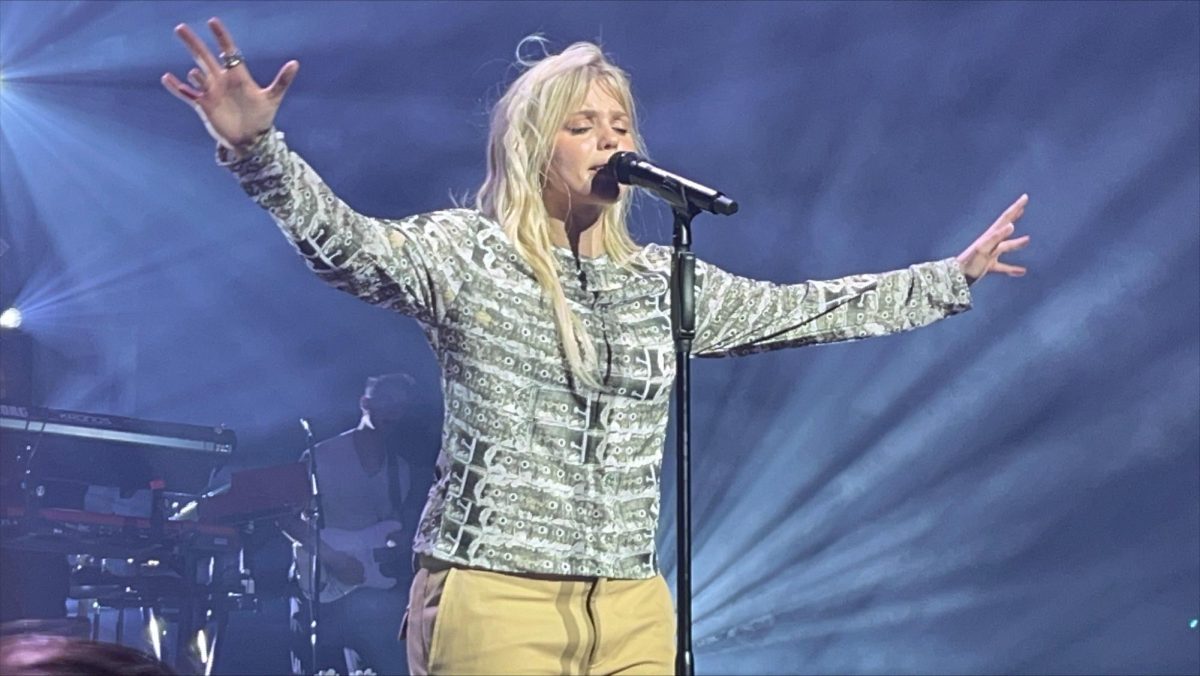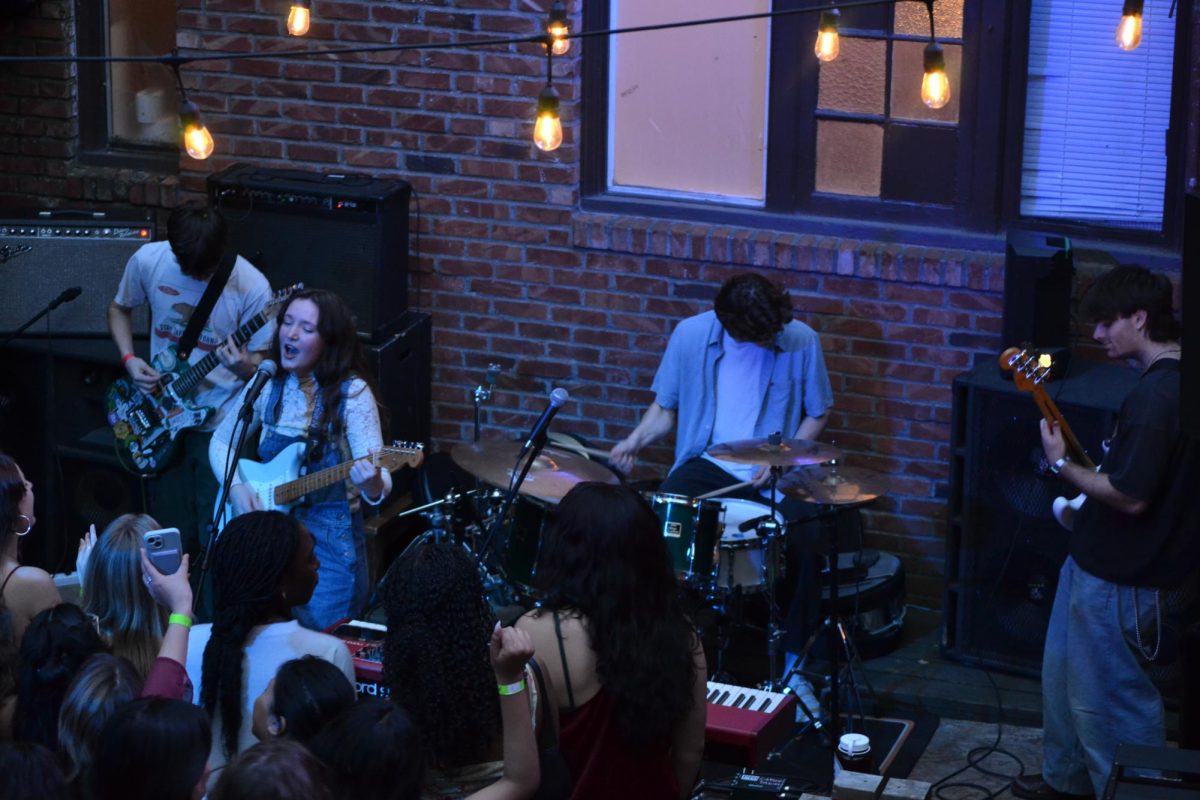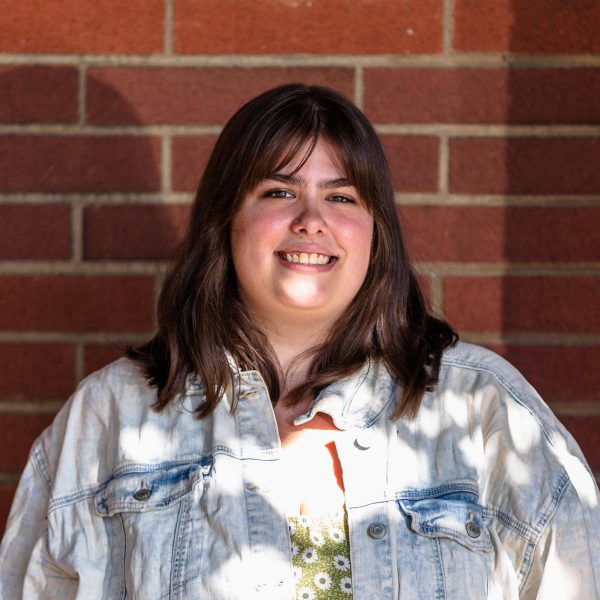
From the shining lights of Broadway to starring in Max’s comedy show “The Sex Lives of College Girls,” Reneé Rapp has done it all. Not only did Rapp play the iconic Regina George in the Broadway production of “Mean Girls” at the age of 19, but she is currently performing her international tour, “Snow Hard Feelings,” to promote her debut album “Snow Angel.”
On Saturday, Oct. 7, Rapp performed in front of a sold-out audience at the Paramount Theatre in Seattle, her fourteenth stop of the tour.
With gold accents covering every inch of the roof and glistening chandeliers adorning the walls near the upper balcony, the Paramount Theatre fosters a feeling of elegance that perfectly fits Rapp. The theater is typically home to operas and musical productions. Due to Rapp’s history in musical theater, the venue felt like a call back to her Broadway roots.
The openers for the show, Towa Bird and Alexander Glantz, also known as Alexander 23, mesmerized the crowd. First up, Bird, known for her rebellious and rock-heavy sound, performed four songs, including her most-streamed single, “This Isn’t Me.”
They also played one unreleased song, and even though fans were unfamiliar with the words, it did not stop them from rocking out. During this song, Bird came off stage and stood on the barricade, holding fans’ hands and belting out lyrics dripping with pent-up anger. Later in the night, Bird returned to perform “Tummy Hurts” alongside Rapp.
Alexander 23’s performance began right after Bird. His gut-wrenching lyrics to the song, “High School” told the story of missing a high school lover and immediately brought a somber hush to the room. Glantz also played his viral single, “IDK You Yet,” and a cover of One Direction’s “Steal My Girl.”
Like Bird, Alexander came back on stage to accompany Rapp during her “I Wish” performance, which he helped her write and produce.
Only 30 minutes after Glantz left the stage, everything went dark, and roars erupted from all corners. As the opening chords of “Talk Too Much” poured out of the speakers, the screams left a loud ring in the ears of all in attendance.
Rapp’s planned the setlist was intentionally to fit an excellently structured theme based on the lyrics “seasons change” from her album’s titular song “Snow Angel.” The setlist was broken into four seasons, starting with spring and ending with winter.
Following the opening of the spring section, Rapp sang “Poison Poison,” which shows the effects of the end of a friendship, particularly one marked by betrayal. This song electrified the audience as they sang it with the same annoyance and anger that exploded from Rapp’s mouth.
Rapp closed spring with “Willow” against a screen of transitioning pink flowers and swaying trees. She wrote it for a younger version of herself, one struggling to come to terms with growing up and planting their roots, much like a willow tree. With many of her fans in their early 20s and the beginning of adulthood, the song describes how they may feel as they transition out of their formative teenage years.
The summer portion of the show included songs such as “Pretty Girls” and “23.” These songs all deal with identity and the feeling of not being enough, which mark summer as a time of self-discovery.
The song “Pretty Girls” is upbeat and energetic. However, the actual message behind it is one that many young women, especially those who are bisexual, including Rapp, know well. Lyrics such as, “Say your boyfriend, he wouldn’t mind. You think I’d be flattered. It’s pathetic ‘cause you’re right,” highlight how both men and other women can use bisexual women to fulfill their sexual fantasies without caring what it does to their self-esteem.
Some fans danced during the song, but others had hands over their hearts and their eyes closed as if they had let the music take over their bodies. The range of emotions Rapp brings to her music, even in the songs disguised by lively tempos, is genuinely soul-stirring.
Moving into the fall section of the show with songs like “I Hate Boston” and “Tattoos,” Rapp’s vulnerability truly began to pour out. Both pieces are powerful ballads showing how relationships can affect someone while dating and after the breakup. Rapp uses her outstanding vocal range to produce heartbreaking riffs that touched the audience’s hearts.
To end the show, Rapp began the final season: winter. In one of her discography’s most honest songs, “Gemini Moon,” Rapp identifies her faults in relationships, noting her tendency to get bored despite her partner being “perfect.” Rapp stood in the middle of the stage, highlighted only by a single spotlight, showing how deeply this confession isolated and affected her personally.
In the final song of the night, “Snow Angel,” Rapp stood at the back of the stage dressed in all white atop the numerous rock props, with angel wings and images of snow falling lighting up the screen behind her. Rapp became emotional during the song as fans in every theater corner held homemade snowflakes with a blue heart drawn in the middle, a fan project orchestrated in the line.
Rapp’s deep emotion in this song and her physical appearance seemed to symbolize the start of a new year, of a new person who had survived all the seasons of change.
After being nominated for two MTV Music Video Awards in September following the release of “Snow Angel,” it is difficult to tell what else she will accomplish that she has not already done. With so many things on the horizon for this young artist in 2024, she is invested in elevating her career and will continue to soar through the seasons of life.
















































































